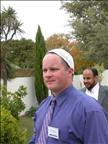 The Holy month of Ramadan is a joyous occasion for many Muslims who make the effort to recite the entire Holy Quran through these four weeks of fasting.
The Holy month of Ramadan is a joyous occasion for many Muslims who make the effort to recite the entire Holy Quran through these four weeks of fasting.
Reading and reciting the Quran are indeed meritorious (Mustahabb) acts and there is a much quoted Hadith recorded by Bukahri that the Prophet (SAW) said: “The best of you are those who learn the Quran and teach it.”
Let me be honest. After Eid Al Fitr, many of us slack off reading the Quran every day of the year. We are easily distracted by the mundane demands and paralysing vicissitudes of the ‘Dunya’ (Temporal World) on our time and energy.
Eid is above all else an excellent opportunity for us to make a personal resolution to not only continue reciting the Holy Quran regularly, but also to make a special endeavour to study the Book from this point onwards: to analyse the words, their etymology and meanings.
This is an opportunity to make a personal pledge to increase our individual comprehension of the classical Arabic language.
There are adult classes held at many Mosques, and plenty of well qualified ulema who can provide tuition and even others ever willing to help in this noble cause (the above quoted Hadith in action!).
True meaning
There are even books at some of the bigger public libraries on Classical and Quranic Arabic, if one wants to go down that path!
For example, how many of us ponder on the exact meaning and beauty of the word ‘Quran?’
It is a verbal noun drawn from the Arabic ‘Qara’a,’ meaning “He read or recited.”
It is related to ‘Iqra’ (read or recite) – the first revelation to the Prophet and also to ‘Qari’ (reader or reciter). Another related word is ‘Qira’at,’ which refers to the methods of recitation.
Modern scholars even believe the word ‘Quran’ is directly linked to the archaic Semitic-Syriac word for scripture reading- ‘qeryānā.’
One can easily spend many happy hours studying the Quran and classical Arabic.
In the final analysis, there is no reason for us not to make an effort to study the Holy Quran during the following eleven months before the next Ramadan!
Arabic calligraphy and recitation of the Quran (Tilawa) are considered fine arts in the Islamic world, and we should all endeavour to make this so in New Zealand as well.
The Holy Book of Islam is the greatest piece of Arabic writing or literature for academic students and an eternal gift from God for all mankind.
British scholar Karen Armstrong praised Quran recitation as a resonant spiritual self-discipline that envelops the reader with “a divine dimension of sound.”
In a roundabout way, the Quran represents the hallowed aural language of Allah: “His speech is on ones lips when the words are recited.”
Abdullah Drury is a former social secretary of the Muslim Association of Canterbury. He lives in Hamilton. Email: abdullah@xtra.co.nz






